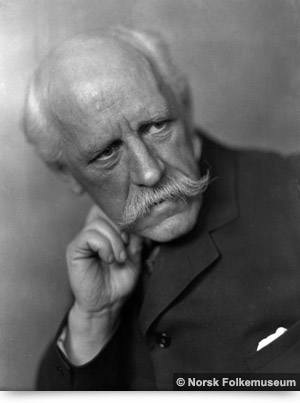
Fridtjof Nansen
Explorer. Statesman. Visionary.
"We must raise our banner in every country and forge the links of brotherhood around the world." - Fridtjof Nansen
Born in Norway in 1861, Fridtjof Nansen excelled as a scientist, polar explorer, diplomat and humanitarian. Today, his courage and compassion remain an inspiration.
By age 27, Nansen had already written his doctoral thesis on the central nervous system and made the first crossing of Greenland's treacherous ice cap. Soon he would lead a 25-month expedition into the Arctic Ocean, coming nearer to the North Pole than anyone before.
Yet Nansen is best known for his visionary work on behalf of refugees. As Europe struggled to rebuild after World War I, he directed the League of Nations' first major humanitarian operation - the repatriation of 450,000 prisoners of war. His intellect, valour and charisma proved instrumental in winning the support of governments and voluntary agencies.

Nansen served as the League's first High Commissioner for Refugees from 1920-1930, helping hundreds of thousands of refugees to return home. His efforts enabled many others to become legal residents and find work in the countries where they had found refuge.
Nansen saw that one of the biggest problems facing refugees was the lack of internationally recognized identification papers. His solution, which came to be known as the "Nansen passport," was the first legal instrument for the international protection of refugees.
When famine broke out in Russia in 1921-1922, Nansen organized a relief programme for millions of its victims. For his crucial work, he was awarded the Nobel Peace Prize in 1922.
Nansen spent the rest of his years working tirelessly for refugees - and preparing for one last polar expedition. Ever a man of vision and action, he was making plans to fly a plane across the Arctic when he died in 1930, at age 69. UNHCR established the Nansen Refugee Award in his honour in 1954.
